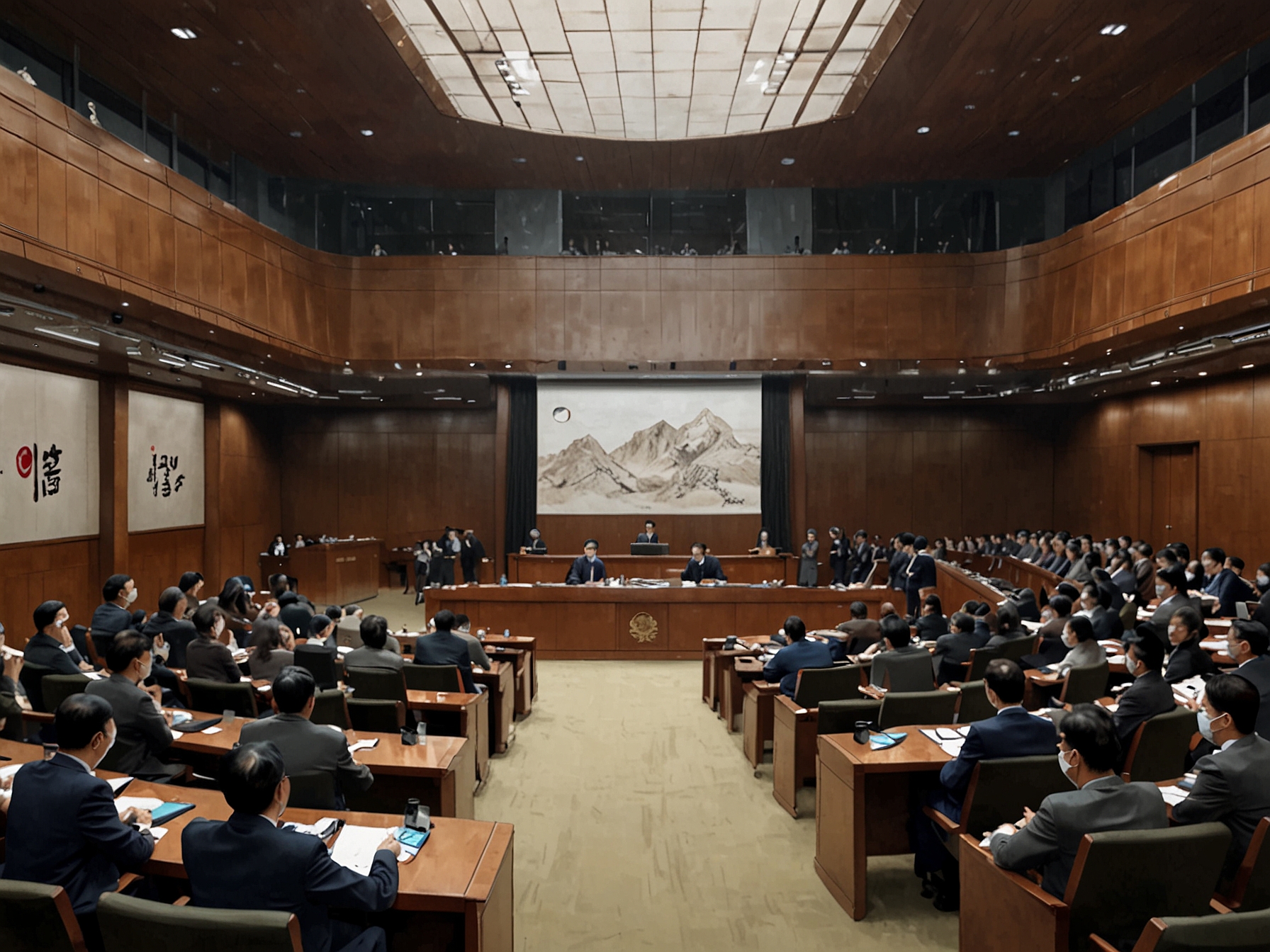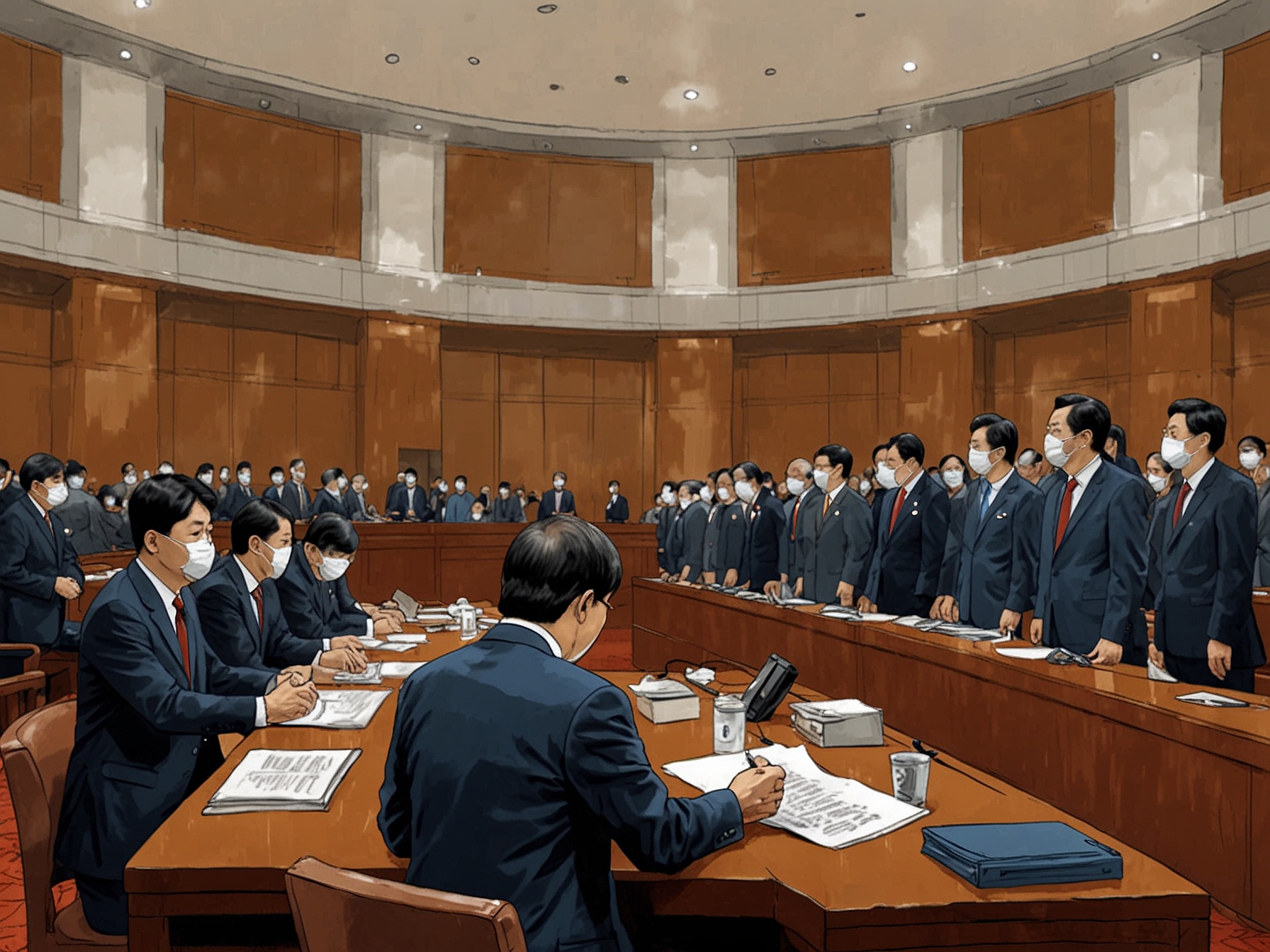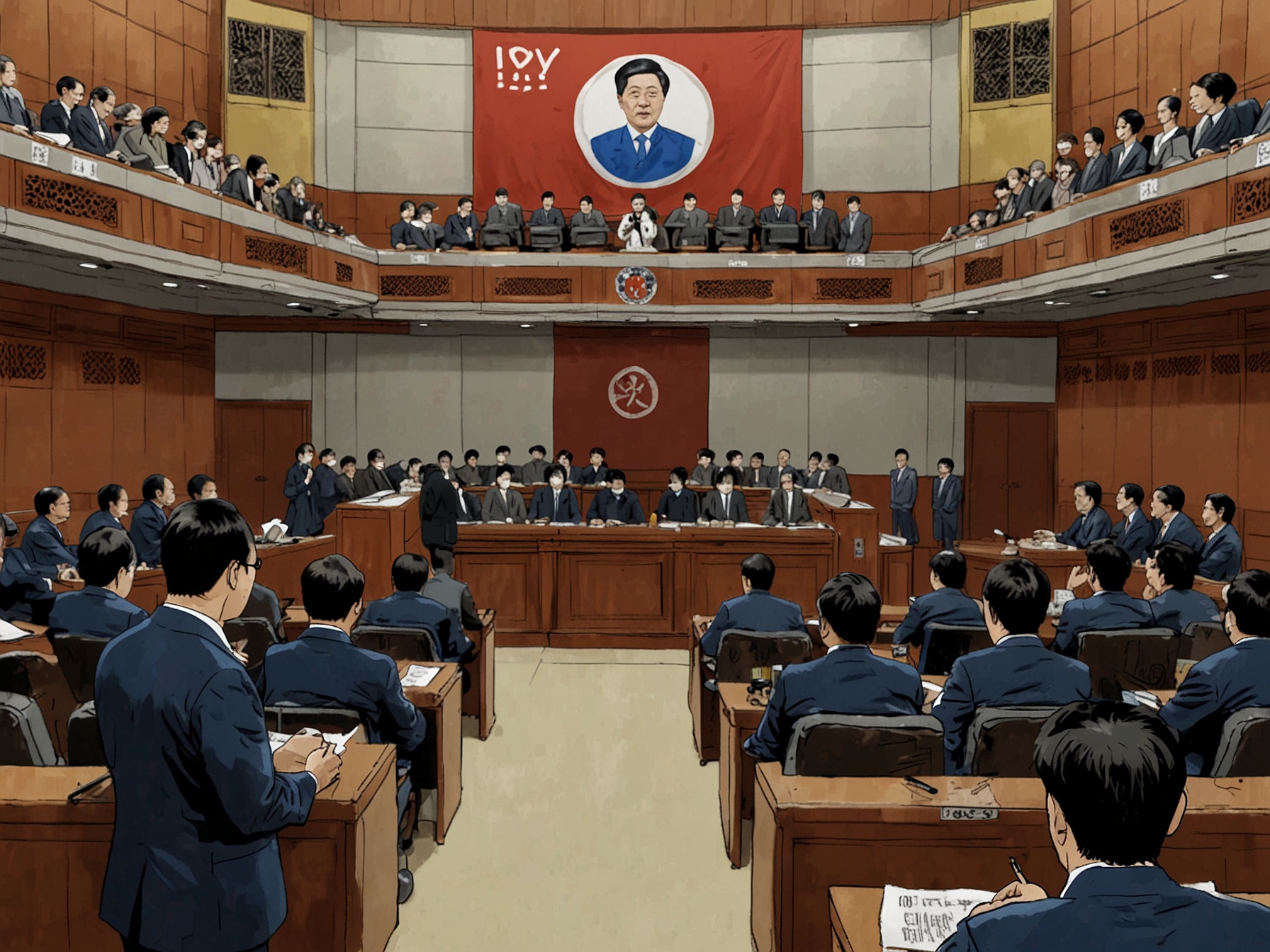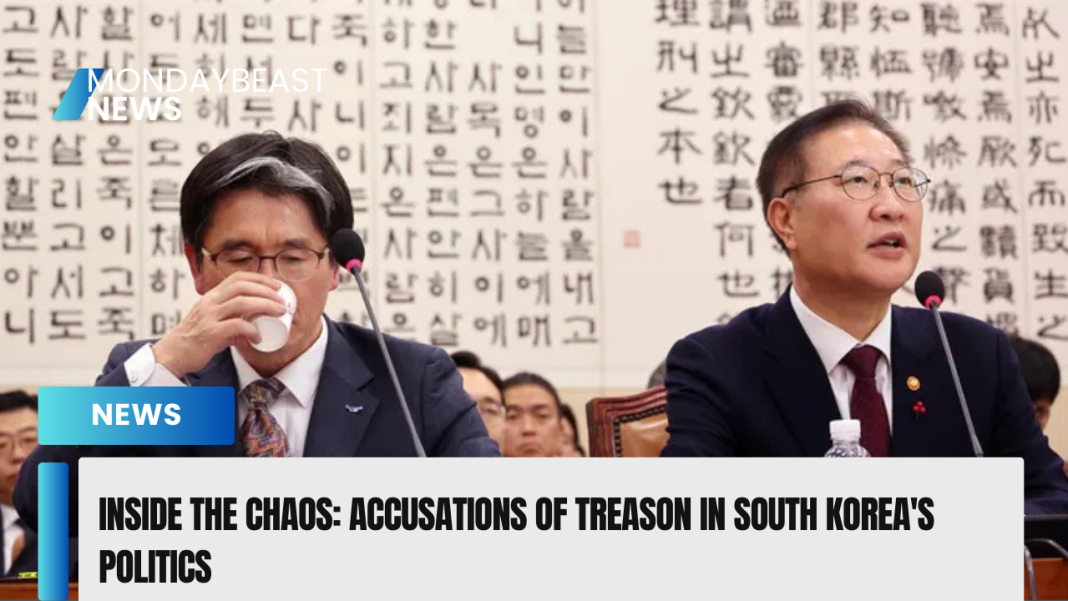The Political Firestorm in South Korea
On December 9, an intense meeting unfolded at the South Korean National Assembly’s Legal Affairs Committee. It was a rare moment of political turbulence. Lawmakers were not just discussing policies; they were embroiled in a fierce debate surrounding accusations against President Yoon Suk-yeol, marking a critical juncture in the nation’s political landscape.
The meeting featured notable figures. Among them, Justice Minister Park Seong-jae and Police Chief Jo Ji-ho faced tough questions. The opposition accused them of complicity in allegations of treason against the President. It begs the question: how far can political scandals go before they affect a nation’s stability?

Especially striking were the remarks from Democratic Party lawmakers. Their accusations sent shockwaves as they claimed Yoon, as the alleged ringleader, had endangered democracy.
The Stakes of Accusations
Why does this matter? These proceedings are about more than just Yoon’s presidency. They speak to public integrity, law enforcement’s role, and the very fabric of South Korean democracy.
Imagine being a citizen watching your political leaders debate the very essence of your government’s legitimacy. As tensions escalated, Minister Park became the focal point of sharp criticisms. Notably, Democratic lawmaker Kim Yong-min asserted that even those close to Yoon should be investigated.

This level of scrutiny raises immediate concerns. Should public servants be held accountable in this dramatic manner?
Questioning Law Enforcement’s Integrity
As we delve deeper, it’s essential to consider the implications for law enforcement. Chief Jo faced intense scrutiny over police actions during a state of emergency.
Critics questioned whether police overstepped their boundaries during the recent military alert declared by Yoon. Over time, could this distrust lead to significant questions about public safety and security?

Jo’s responses appear to indicate a defensive stance. He claimed he had directed lower-ranked officers not to report to him regarding the case, distancing himself from operational responsibilities. This begs the question: can law enforcement leadership remain objective when under such scrutiny?
Public Sentiment and Protests
Public sentiment is shifting as protests grow louder. Just outside the National Assembly, citizens express their frustrations. The discontent swells, fueled by perceptions of betrayal.
The song “Into the World Again” by Girls’ Generation, sung at protests, symbolizes this resistance. The emotional impact of music amplifies the dissent and serves as a powerful reminder of the collective anxiety among citizens.
As the conversations evolve, the gathering momentum suggests an impending confrontation. What does this mean for President Yoon’s administration? The unrest feeds into broader societal issues that transcend politics alone.
The Future of Governance in South Korea
What lies ahead for South Korea? The outcome of these discussions could redefine the nation’s governance. The action taken in the coming weeks might set vital precedents for accountability.
If Yoon faces charges, will future leaders experience similar scrutiny? The National Assembly’s atmosphere hints at a potential shift in the political paradigm. For many citizens, the political theater feels personal.
This political drama is not just abstract; it affects daily lives, shaping perceptions of authority.
Concluding Thoughts: The Need for Accountability
As political instability looms, the dialogue must evolve. Renewed trust between citizens and their leaders is critical. Will the ongoing investigations either bolster or dismantle that trust?
As this story unfolds, each development will answer profound questions about leadership and responsibility in South Korea. Future debates may reveal deeper sentiments regarding governance. What should the standard be for holding public officials accountable?
Can government accountability and public trust be rebuilt? In this time of uncertainty, everyone awaits clarity and resolution.




